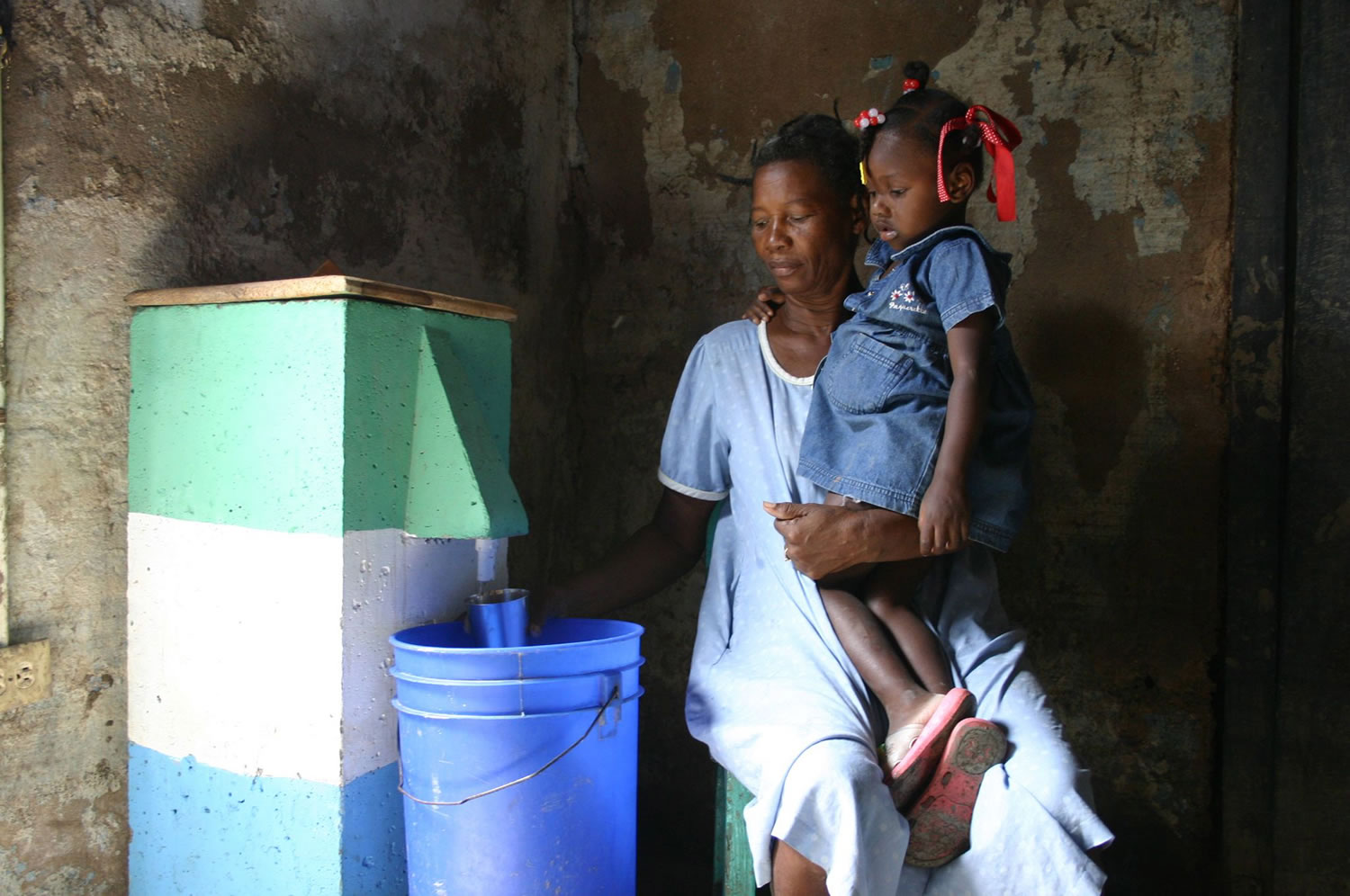The Rollings’ organization, Clean Water for Haiti, is working to improve one aspect of life there — the contaminated water.
“I worked in a malnutrition clinic,” said Leslie, the agency’s administrative director. “When we did intake, we’d ask about diarrhea. We would have to talk about how it isn’t normal.”
When clean drinking water becomes available, “Parents can see that their kids can be healthy; these parents didn’t know what that looked like,” she said. “They don’t have a baseline for normal.”
In addition to seeing results at the family level, the Rollings can see progress on a larger scale.
“The water is slightly better,” Chris said during a recent Christmas visit to Vancouver. Gauging their success can be a variation on glass-half-full/glass-half-empty.
“We’ve reached almost 2 percent” of the Haitian population, the 1993 Hudson’s Bay grad said.
There’s another way to look at it.
“We’ve made 18,000 units, and each one is used by eight to 10 people a day,” said Chris, the agency’s director and technical chief.
Not all of the filters are still in use, but it still adds up to a lot of people — even in a nation of 10 million.
Each filter uses a combination of filtration sand and a layer of microorganisms to treat more than four gallons of water an hour. Families pay about $5 for their filters, although they cost about $55 each to make.
Expanding the outreach is tough for all nonprofits in this economic climate. At their peak in 2010, the Rollings’ operation produced 230 filters a month. This year, they’re averaging 110 a month, Chris said.
Clean Water for Haiti has another challenge because of its under-the-radar mission.
“Fundraising for projects like ours is difficult,” Leslie said, because each new catastrophe focuses the world’s attention on another group of disaster victims. Donors who respond to dire need when it’s highlighted on their TV screens often overlook projects that have been around for years.
“We’ve been building filters since 2004 and that continuity is unique,” Chris said. Some donors favor quick-turnaround projects, he said, and “After six months, you’re just figuring it out.”
In large-scale international philanthropy, “Money gets wasted like crazy,” he said.
The Rollings said they had a chance to compare notes with a friend who worked for the State Department. In 2007, they said, their organization turned out 1,200 filters on a budget of $180,000.
Their friend, meanwhile, was part of a $34 million project that taught people how to wash their hands.
The Rollings have benefitted from some partnerships, including a connection with the Centre for Affordable Water and Sanitation Technology, a Canadian-based nonprofit that works in 63 countries.
And when there was a chance to upgrade a crucial water filter component, an industrialist stepped forward to help. The man, who’d been following their project, is the president of a plastics molding company.




